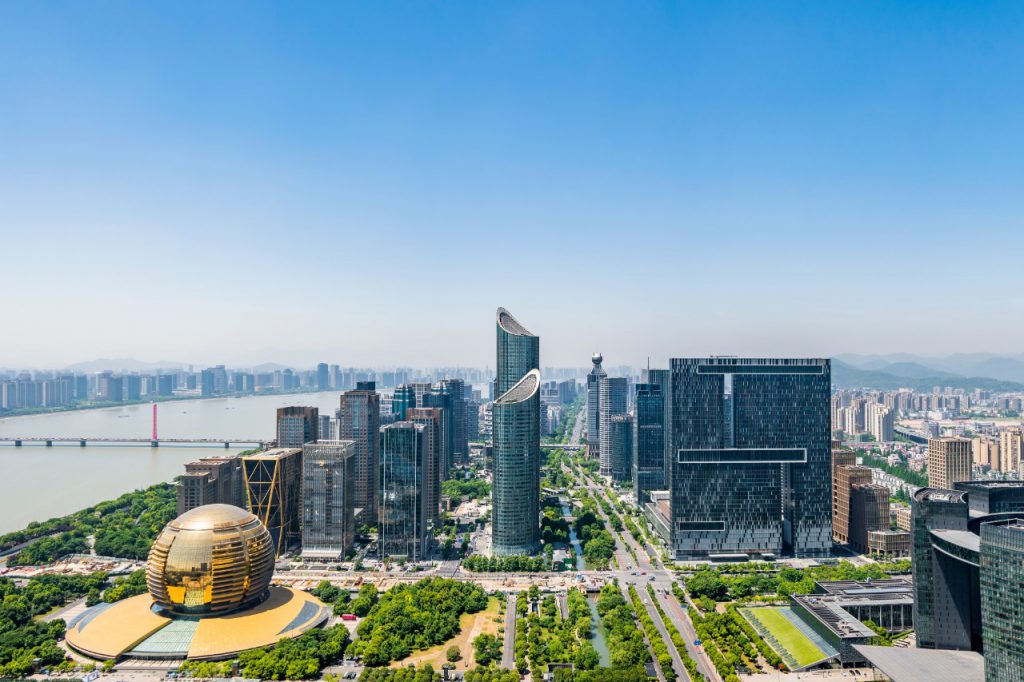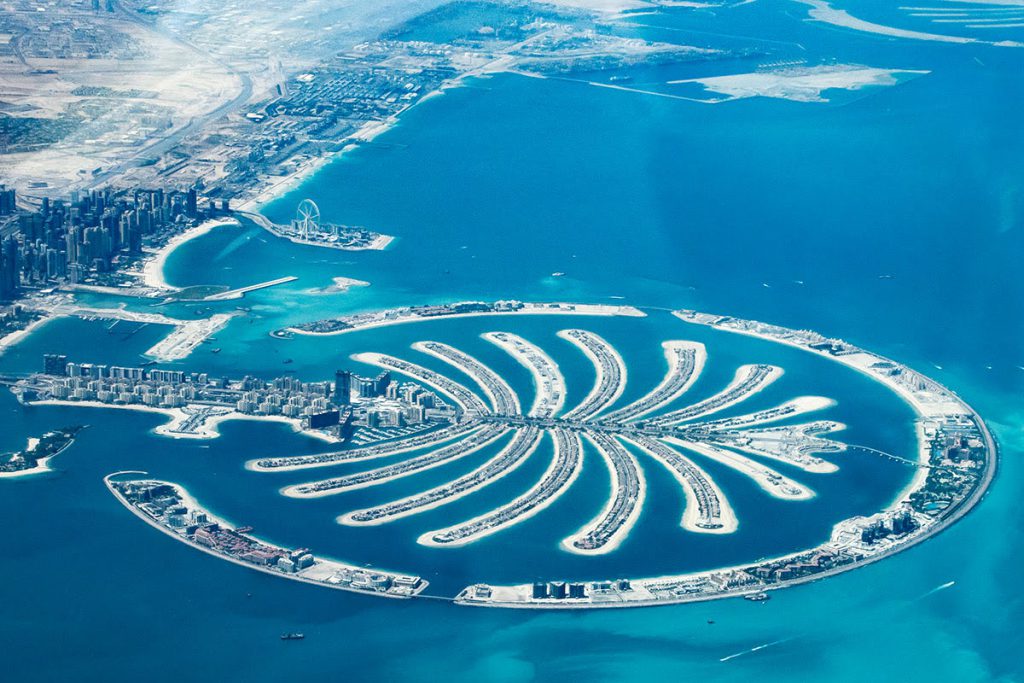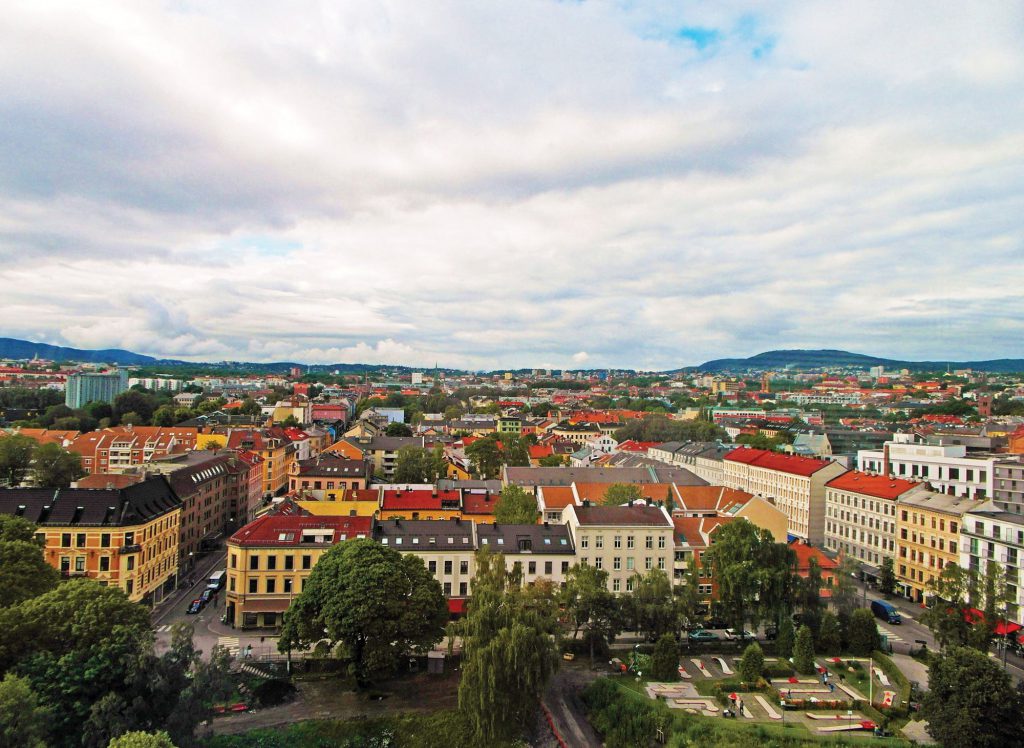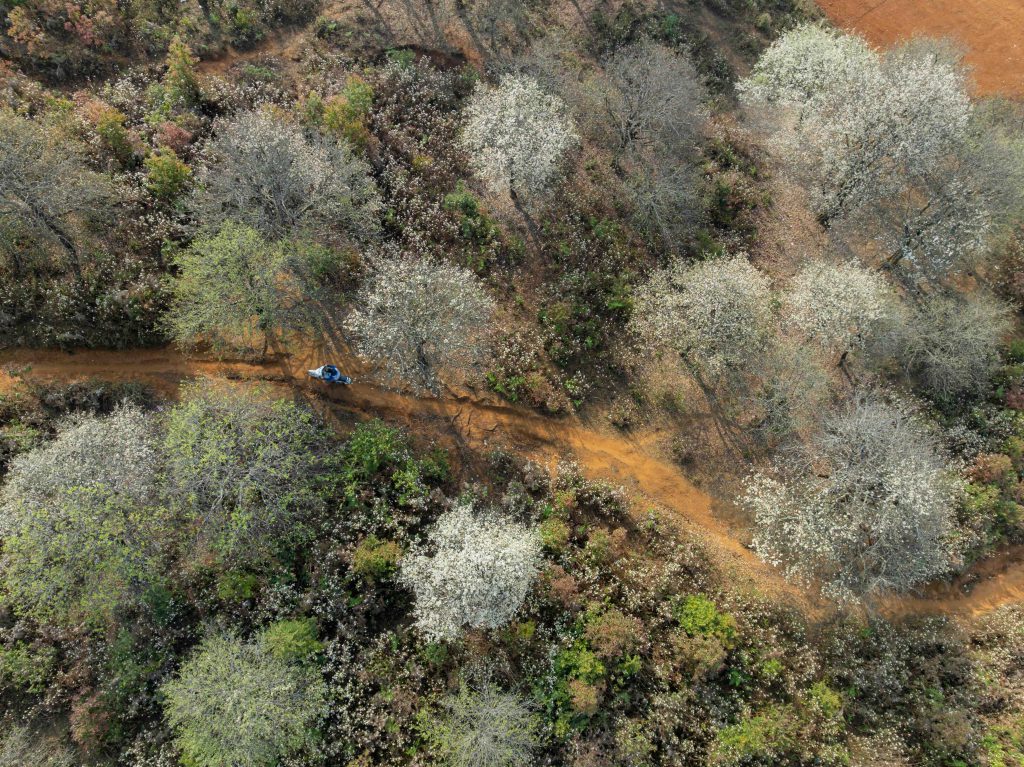Story: Huyen My Truong
High-tech services and futuristic architecture can be found in four of the world’s smartest cities.

ASTANA – KAZAKHSTAN
The Guardian describes Astana as a “space station in the steppes,” while CNN calls it the “world’s weirdest capital city.” Gazing at Astana’s skyline, you’ll find a plethora of colorfully lit glass skyscrapers in eye-popping shapes. Even its location evokes sci-fi settings often seen in blockbuster films, as the surreal city rises from seemingly desolate grasslands.
Home to just over 1 million people, Astana is a large-scale urban planning project permeated with a futuristic atmosphere. Its most famous monument, the 105-meter Baiterek tower, resembles the giant FIFA World Cup trophy. Another architectural highlight is the Khan Shatyr Entertainment Center, a 150-meter-tall transparent tent with an area larger than 10 football stadiums. It features a huge shopping center and an indoor beach resort.

HANGZHOU – CHINA
The list of China’s leading tech cities such as Shanghai and Beijing would not be complete without mentioning Hangzhou, the forerunner of the future cashless trend. Purchases and services are paid for via facial recognition on a smartphone by scanning QR codes. The entire payment process normally takes between 5 and 45 seconds. When it comes to technology adoption, Hangzhou has constantly been ahead of the curve.

DUBAI (UAE)
Dubai, the most populous and modern city in the United Arab Emirates, has launched at least 100 development projects scheduled for completion in 2028. One of the most notable initiatives is District 2020, which aspires to create a future-proof, sustainable city. The development takes a human- centric approach as physical infrastructure and facilities will be transformed and virtual technologies will be utilized. Furthermore, with the introduction of the Dubai-Abu Dhabi Hyperloop, a 151-kilometer-long subway estimated to cost USD 6 billion, the city aims to reduce vehicle emissions and traffic congestion. The construction of the first 10 kilometers of this subway has already been completed.
Dubai’s ambition is to become a tech-oriented emirate with artificial intelligence as the key building block. By 2040, it aims to be the world’s first smart megacity, setting the standard for a “15-minute city.” Residents living in this metropolis will be able to access all daily necessities by either walking or cycling for 15 minutes or less.

OSLO – NA UY
Oslo boast some of the fastest internet access on the planet, topping the list for 5G speeds among world capitals in 2021. But the Norwegian capital’s smart city ambitions go much farther.
With a population of around 670,000 people, Oslo plans to replace all existing vehicles with electric ones by 2025.
It is also one of the few cities in the world that meet both smart and sustainable criteria, as it boasts the highest number of electric automobile charging stations globally. Most importantly, sensors are strategically placed across the city to monitor global environmental pollution.









